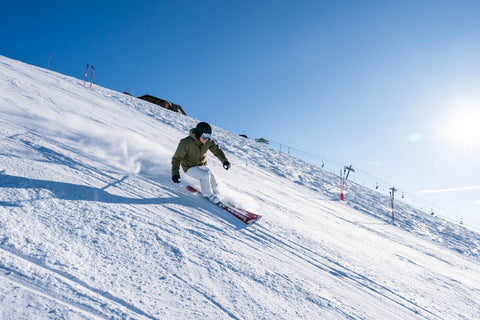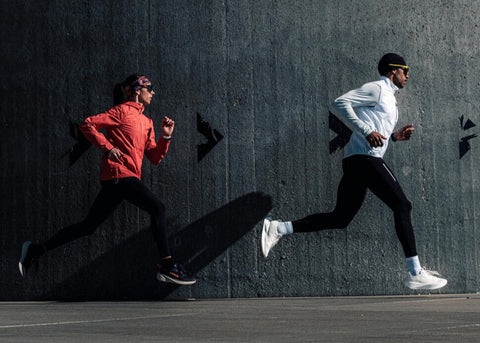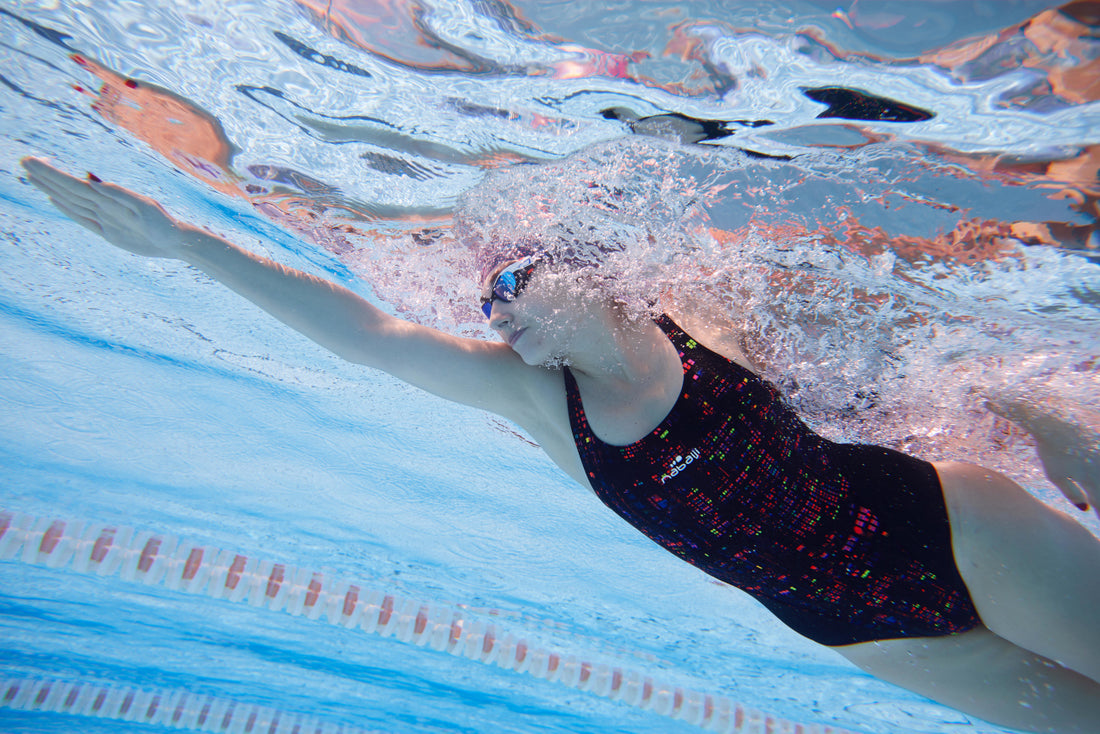Our Chlorine-Resistant One Piece Swimsuit moves with you in the water
1) Sleep
First and foremost, sleep is good for you in all aspects of life! Sleep will help you recover after a hard day, and especially after a hard day of swimming. After a good workout in the water you will undoubtedly be tired, too, so sleep will be all the more enticing. This will lead to a virtuous cycle where you will sleep better after a workout and you will work out better after getting such good sleep!
2) Massage and roll your muscles
After any workout, your muscles will be worked, tired, and tense. It's important to let them relax. Get a massage from a savvy friend (perhaps a fellow swimmer) on particular problem points around your body. Alternatively, get a massage from a professional who has experience working with swimmers. If you're on you're own, consider using a foam roller or a massage gun on key points around your body where you experience soreness, tenseness, or pain.
3) Eat right and hydrate
After a day of intense swimming, you'll want to recharge. A post-swim meal heavy in carbohydrates and proteins will help you recover and help your body rest and regain energy.
Even though you've spent all day in the water doesn't mean you don't need to drink any. Hydration is important, especially after intense sessions (just because you're in the water doesn't mean you don't sweat)! Hydration will help your body recover after intense exercise and prepare your muscles for the next session
4) Stretch!
As with any exercise, you're going to want to stretch! You can stretch to warm up and prepare your muscles to swim, but you definitely want to stretch after your session. Do a 400 free (or more!) to get excess lactic acid out of your muscles and some static stretches to extend out the muscles you know get sore after your workouts.
















